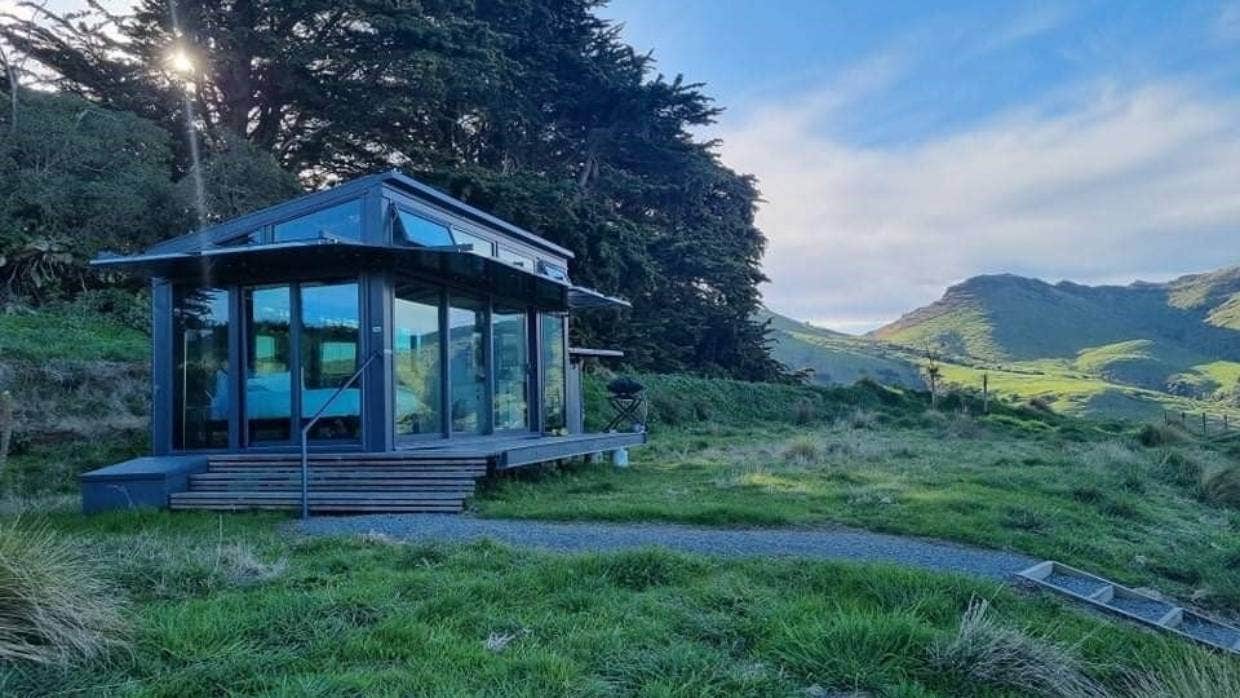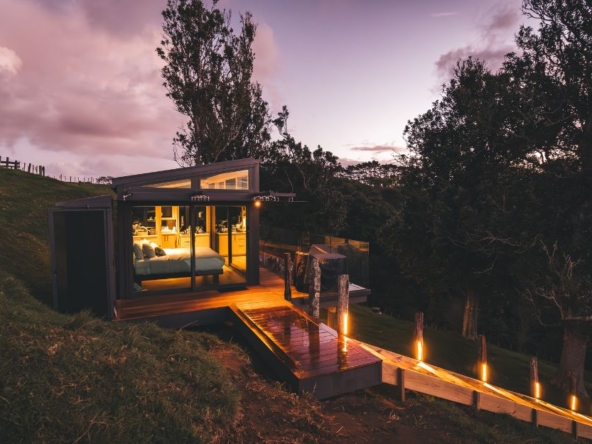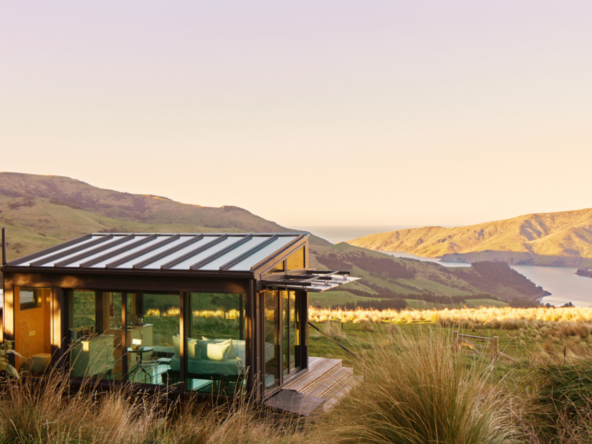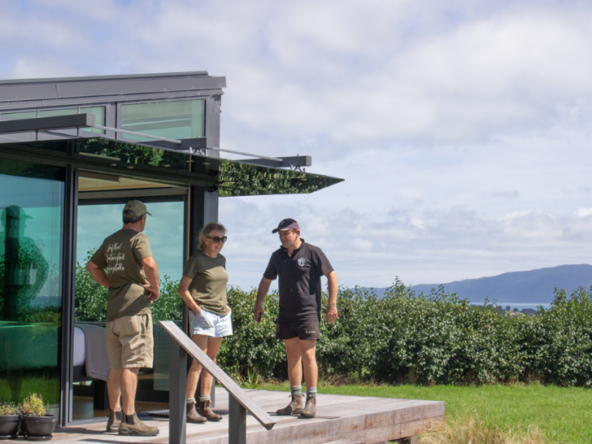OPINION: Being involved in business, I’m unfortunately often presented with guru business futurists breathlessly describing the future. For anyone who hasn’t had the slightly religious-feeling experience, these pundits wave their arms around and talk about “exponential change,” “moonshot” and, my favourite, “disruption”.
Basically what they mean is that some businesses are doing things differently than in the past and making commercial gains in the process. But, of course, buzzwords generate more consulting revenue so disruption it is.
It’s a shame that these folks resort to buzzwords because underlying these changes are some really interesting approaches to business that, disruptive or not, are driving better outcomes for suppliers and customers alike.
I was thinking about these themes of business innovation recently when spending a night at a PurePods location in Banks Peninsula.
For those who haven’t come across them, PurePods is a company founded by inveterate inventor Grant Ryan (who also developed the YikeBike an e-bike before e-bikes were even a thing). The company gave me the chance to experience their offering, and I in turn took the chance to think about what it means for tourism more generally.
First a quick description of PurePods physical form: These are glass cubes, located in generally fairly isolated rural environments and powered mainly by sunlight.
Leveraging smart technology developed internally by PurePods, the pods are warm and airy and give guests all the benefits of being outside (unimpeded views and a feeling of oneness with the environment) without the downsides (like being cold or exposed to the rain).
They’re only accessible by foot and are designed to give guests an intimate stay, immersed in nature and with no distractions beyond the hills, the sky and the other natural features.

Ryan put his engineering and varied skill base to work and designed these pods to be entirely off-grid and to have robust communication systems despite often being situated in areas with no cellphone access.
Custom-designed parts allow for large expanses of glass to survive in high wind and snow load areas and a smart operational management system allows the pod’s data to be monitored remotely from PurePods HQ.
And while the physical form of PurePods is the most obviously striking thing about them, they’re much more than that when one looks through the business model lens. You see, PurePods partners with rural landowners to allow them to generate extra revenue from their land, without resorting to extractive activities.
So, rather than (for example) dairying and all its deleterious impacts to generate income, a farmer can add a PurePod or two to their range of activities to generate some extra revenue.
PurePods is also a network. That aforementioned farmer is likely working the land precisely because they like to be self-contained and not spend their time directly serving customers. The PurePods model doesn’t necessitate any interaction between the host and the guest
Guests book on the PurePods website, receive access instructions and make their own way to the location. They’re undisturbed during their stay and retrace their steps to leave when their time is up. Other than cleaning and laundry, there’s nothing for the landowner to do – no bookings to wrangle, no pesky guest enquiries to answer and no marketing needed.
Thus far, you have a few destinations, all in the Canterbury region and all bookable from a single website. However, if you extrapolate that out over time, you start to have something that actually does tourism and accommodation a different way. Far be it from me to use the word “disruptive” but it’s certainly something different.
As we move into a post-Covid phase, experiential visitor offerings are going to be the name of the game. I’ve been fortunate to spend the past 15 or so years travelling around the world for work, I’ve stayed at innumerable flash hotels and have grown fairly blasé about yet another glitzy hotel foyer or free shower robe.
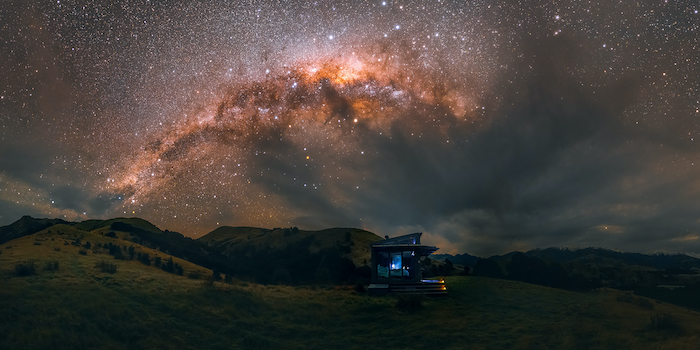
So while generic hotel chains are a known commodity, and Airbnb gives travellers myriad options, there isn’t really a platform that offers a nationwide network of accommodation options, all within rural and visually stunning locations and all with a consistent theme (environmentally low-impact, rurally situated, living in nature…).
Play that out over time and one can easily imagine a service that integrates sustainable and environmentally-friendly travel options (a fleet of electric vehicles, for example) and corresponding food options (locally sourced fresh fare).
All of a sudden a well-heeled traveller, be they domestic or international, can arrange their two-week road trip in New Zealand from one place while attaining a consistently high level of quality and sustainability. Their entire trip can avoid busy cities and take them to pristine rural environments.
For the farmer landowners, they diversify income streams and mitigate their own risk from changes in consumer behaviour and farming regulations. And for NZ Inc, we find a new way to leverage our clean, green image (authentic or otherwise) as we enjoy increased tourism with a low-impact model.
The key will be in how quickly PurePods can scale their operation, half a dozen options in one region doesn’t get close to delivering the network effects that are needed to really move the needle for our tourism industry.
Based on the one night I spent high above Banks Peninsula, it would be worth adding PurePods into the “tourism done differently” mix.
By Ben Kepes, Stuff.co.nz
Ben Kepes is a Canterbury-based entrepreneur and professional board member. He’s a bit of a fan of sleeping under the stars.
